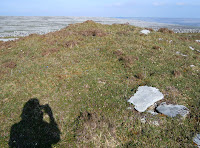“To forgive is to set a prisoner free and discover that the prisoner was you. ~Lewis B. Smedes
The Worldwide Forgiveness Alliance declared Aug 4, 2013 as world wide forgiveness day. What would it take to have a little more forgiveness in our lives?
I knew a person who held a grudge for over 50 years. She was disappointed in the man she married. He hurt her feelings,left her at home with the babies while he played golf and he violated her trust by taking money from the family savings. As a consequence, she carried anger, bitterness and resentment for 50+ years. She felt very justified in her feelings. She never noticed that she had created 50+ years of living in a toxic soup of negativity. It impacted her well-being and leaked into other relationships.
I know several others who headed the same direction… so consumed with how they were hurt, so angry at someone's behavior. It overshadows all that is good in their life and inhibits their ability to be present.
Getting hurt or disappointed is almost inevitable. Someone criticizes your parenting, comments on the weight, violates your confidences, hurts you intentionally, drinks too much, lies to you….
What would it take to bring a bit more forgiveness into our lives?
The Mayo Clinic website says;
“Generally, forgiveness is a decision to let go of resentment and thoughts of revenge. The act that hurt or offended you might always remain a part of your life, but forgiveness can lessen its grip on you and help you focus on other, positive parts of your life. Forgiveness can even lead to feelings of understanding, empathy and compassion for the one who hurt you. Forgiveness doesn't mean that you deny the other person's responsibility for hurting you, and it doesn't minimize or justify the wrong. You can forgive the person without excusing the act. Forgiveness brings a kind of peace that helps you go on with life.”
“Often, we think that by having compassion for someone, we are excusing his/her behavior. This isn’t true. Compassion provides us with a lens that helps us understand—not excuse—people’s actions.” ~Bethany Butzer
There are many ways to open our hearts to forgiveness. We may need professional help, time or healing practices (like the loving kindness meditation). It is worth learning. Forgiveness serves OUR well-being. As the Worldwide Forgiveness Alliance says, forgiveness is the greatest healer of all…



